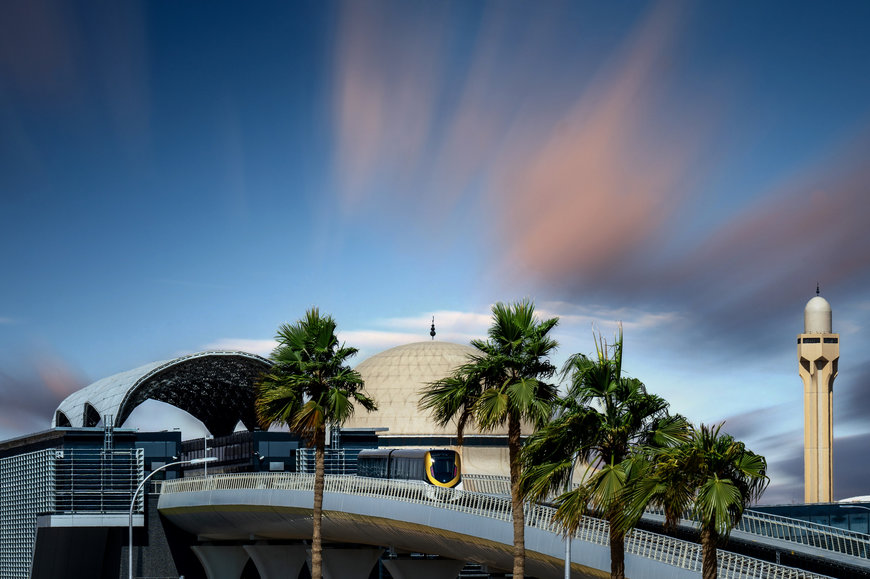railway-international.com
28
'24
Written on Modified on
Egis plays key role in delivering one of the world's largest automated transit systems
Egis, as part of the Riyadh Metro Transit Consultants (RMTC) consortium, was responsible for supervising the project management, design, and construction of the project.
www.egis-group.com

The Riyadh Metro network is set to transform urban transport for the Kingdom’s capital city and its residents. Egis, as part of the Riyadh Metro Transit Consultants (RMTC) consortium, was responsible for supervising the project management, design, and construction of the project, delivering the network’s Blue, Red and Orange lines (Lines 1, 2 and 3), on behalf of The Royal Commission for Riyadh City (RCRC).
Transforming transportation in a rapidly growing city
The new public transport network features 183 trains serving 85 stations across a total of 176 km, complemented by a Bus Rapid Transit (BRT) system. With an initial capacity of 1.1 million daily passengers, and a planned maximum capacity of 3.6 million passengers, the new public transport network will significantly alleviate traffic congestion, improving air quality by minimizing the reliance on private vehicles.
Designed to accommodate Riyadh’s fast-growing population, the Riyadh Metro network serves key pillars of the Kingdom’s Vision 2030 for global competitiveness, enhanced urban development, and improved quality of life. Based on a Level 4 automated system (next-generation technology that operates without any on-board staff for operation and maintenance), the network will ensure high levels of passenger safety and comfort while being accessible to all.
Egis’ contributions
The Riyadh Metro Transit Consultants (RMTC), comprising of Egis, Parsons and Systra, were responsible for the Blue, Red and Orange lines, also known as lines 1, 2 and 3, and equivalent to 60% of the Riyadh Metro’s full network – or 104 kilometers of rail infrastructure, including 55 standard rail stations, 5 major stations (4 of which are transfer hubs), 5 depots and 4 park-and-ride facilities. The construction incorporated various methods, such as bored and cut-and-cover tunnels with both deep and shallow underground stations, viaducts with elevated stations and at-grade rail and station designs.
By integrating eco-design principles and carbon reduction strategies, Egis collaborated closely with the Royal Commission for Riyadh City (RCRC), to ensure that the project adheres to sustainable development goals. This included achieving Gold LEED certification for KAFD and Qasr Al Hokm stations and delivering world-class infrastructure. This approach will contribute to improved air quality, underscoring the continued importance of responsible infrastructure development.
One key focus was station and train cooling systems; teams from Egis’ Mechanical Electrical and Public-health (MEP) and Rolling Stock Engineering worked diligently with contractors to continuously meet the demanding comfort requirements. Additionally, the MEP teams met the approval of Fire and Life Safety systems for stations and tunnels, ensuring compliance with the stringent standards of the United States National Fire Protection Association (NFPA) and the General Directorate of Civil Defense (GDCD).
Egis implemented advanced methodologies, such as Reliability, Availability, Maintainability, and Safety to guarantee a reliable, sustainable and safe transportation system for Riyadh. Passenger safety remained a top priority, with Egis working in partnership with the Transport General Authority, The Royal Commission for Riyadh City (RCRC), Independent Safety Assessors (ISAs), and contractors, to address all safety aspects comprehensively.
www.egis-group.com

